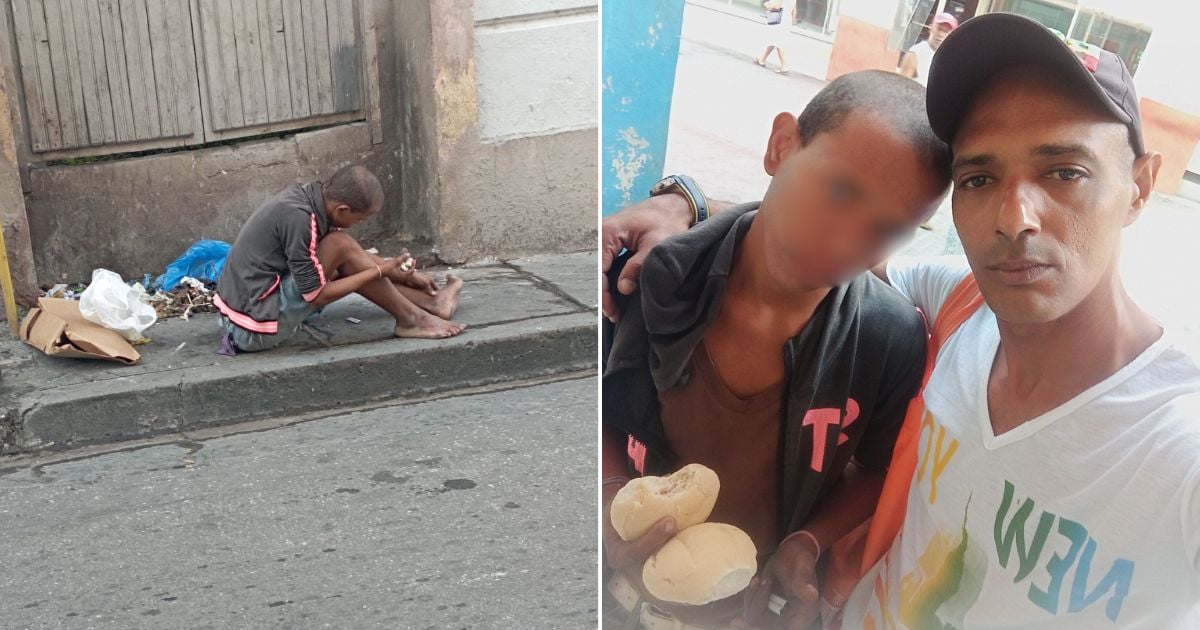
A boy was found last Sunday while rummaging through a garbage container for food at a corner in Santiago de Cuba, according to reports from an activist in the city on social media.
The case was reported by Yasser Sosa Tamayo on his Facebook profile, who recounted that the child, apparently with mental health issues, lives in Micro 8 with his father, who suffers from alcoholism.
Additionally, he identified the boy as Jesús and explained that he was in view of several passersby, who ignored him while he rummaged through the garbage in search of food.
The activist expressed his dismay and described the scene as a reflection of the social insensitivity affecting the community: “You can only embrace him, pull him away from that foul-smelling corner, and do what you have to do with what you have on hand,” he noted in his post while showing the little boy holding a couple of bread rolls.
"I can only write these melancholic letters while I think about how miserable we have become as human beings," the activist expressed, surprised by the indifference of those who did not stop to help the child.
Sosa's complaint highlights a broader issue related to the neglect and lack of attention given to the most vulnerable sectors of Cuban society.
The image of the child eating among the waste sparked outrage among those who learned about the story through social media.
Many people lamented that the current economic crisis is leading to situations of helplessness like this one, criticized the regime for not taking action, and praised the activist for his gesture of solidarity.
Sosa, also recognized as a writer, has intensified his charitable work in support of the most disadvantaged individuals in Santiago de Cuba in recent months.
In June, the United Nations Children's Fund (UNICEF) published a report that included Cuba in its assessment of child nutrition.
UNICEF revealed that 9% of children in Cuba suffer from severe food insecurity, meaning they have access to only a maximum of two out of the eight essential foods for a healthy life.
According to the document, among children affected by severe food insecurity, four out of five primarily consume breast milk and dairy products, along with a staple food rich in starch, such as rice, corn, or wheat.
Only 10% of these children consume fruits and vegetables, and less than 5% receive proteins from sources such as eggs, meat, poultry, and fish.
A total of 4.2 million Cubans, or 37.8 percent of the country's population, experienced food insecurity in 2023, according to a study released this Thursday by the United States Department of Agriculture (USDA).
The collapse of agricultural production in Cuba over the past seven years, coupled with its increasing dependence on food imports, has exacerbated the food crisis on the island.
This is compounded by a reduction in trade, a decline in tourism revenues, and a decrease in remittances from abroad, resulting in nearly 40% of the Cuban population facing food insecurity, according to a study by the Economic Research Service (ERS) of the USDA.
Filed under: